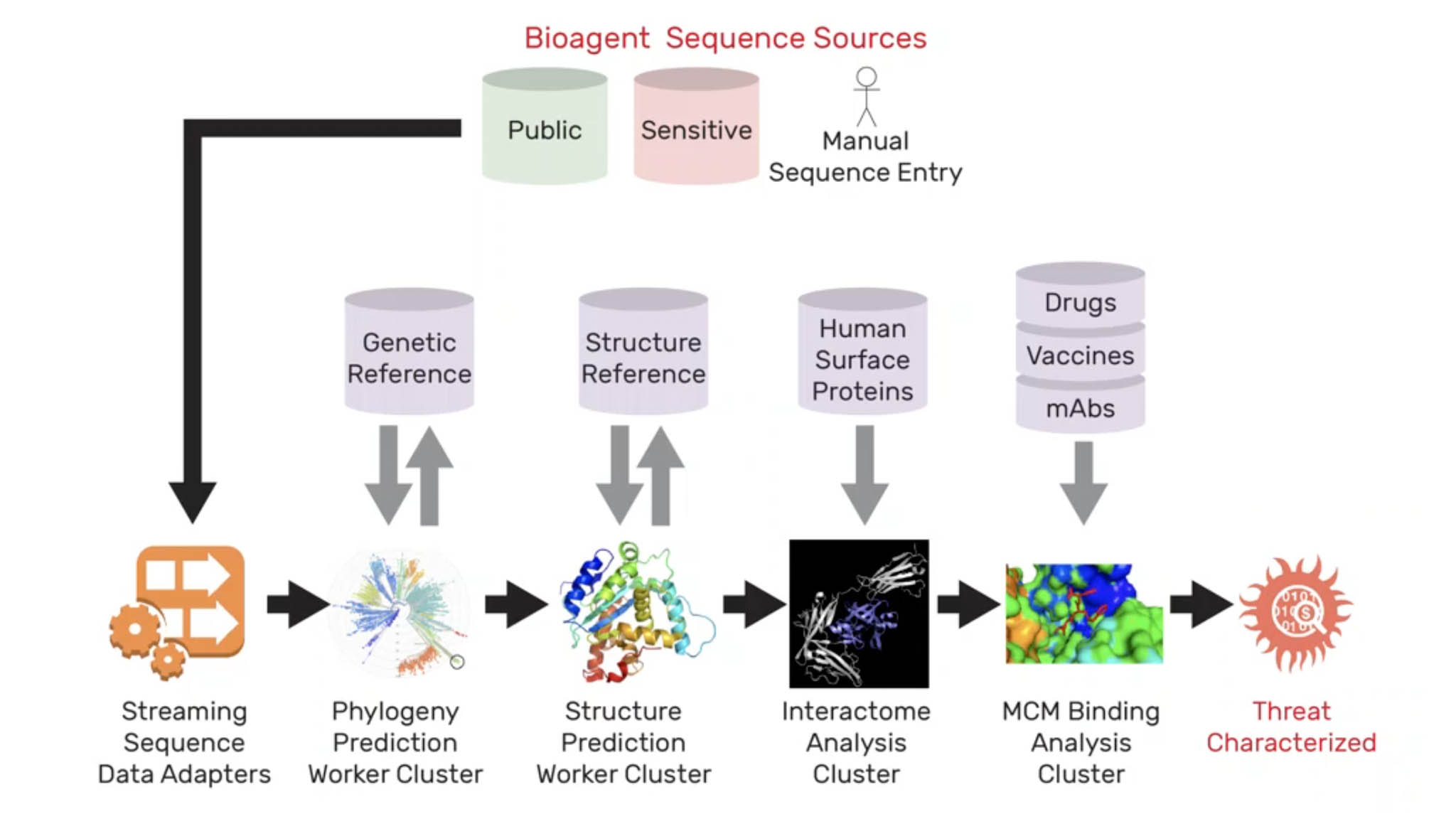



The ability to identify and characterize function of an unknown pathogen, such as a virus, bacteria, or toxin, from its biological sequence is critical to quickly determine the potential impact against human health. SEQer aims to build an end-to-end computational testbed that can stream biological sequences in real-time and determine their function to identify possible biothreats. To test the SEQer pipeline, we ran through an experiment investigating the interactions of SARS-CoV-2 with 67 different human cytokine proteins, a measure of infectivity.
We looked at 12 variants of concern of SARS-CoV-2 along with 5 other coronaviruses to evaluate the evolution of the viruses to infect humans. This combination of computational experiments (17 different viruses vs. 67 human proteins) resulted in a total of 1,139 simulations. We performed these simulations with a multi-threaded CPU-based algorithm on the Xeon Knight’s Landing platform with 64 physical cores assigned to each simulation. We also performed simulations with a competing single-threaded GPU-based algorithm using a single Nvidia V100 GPU per simulation.
